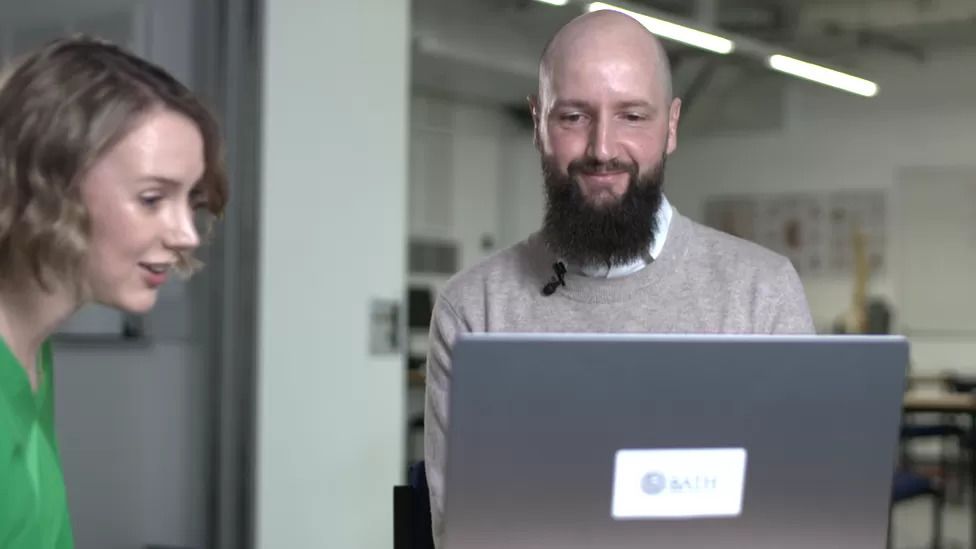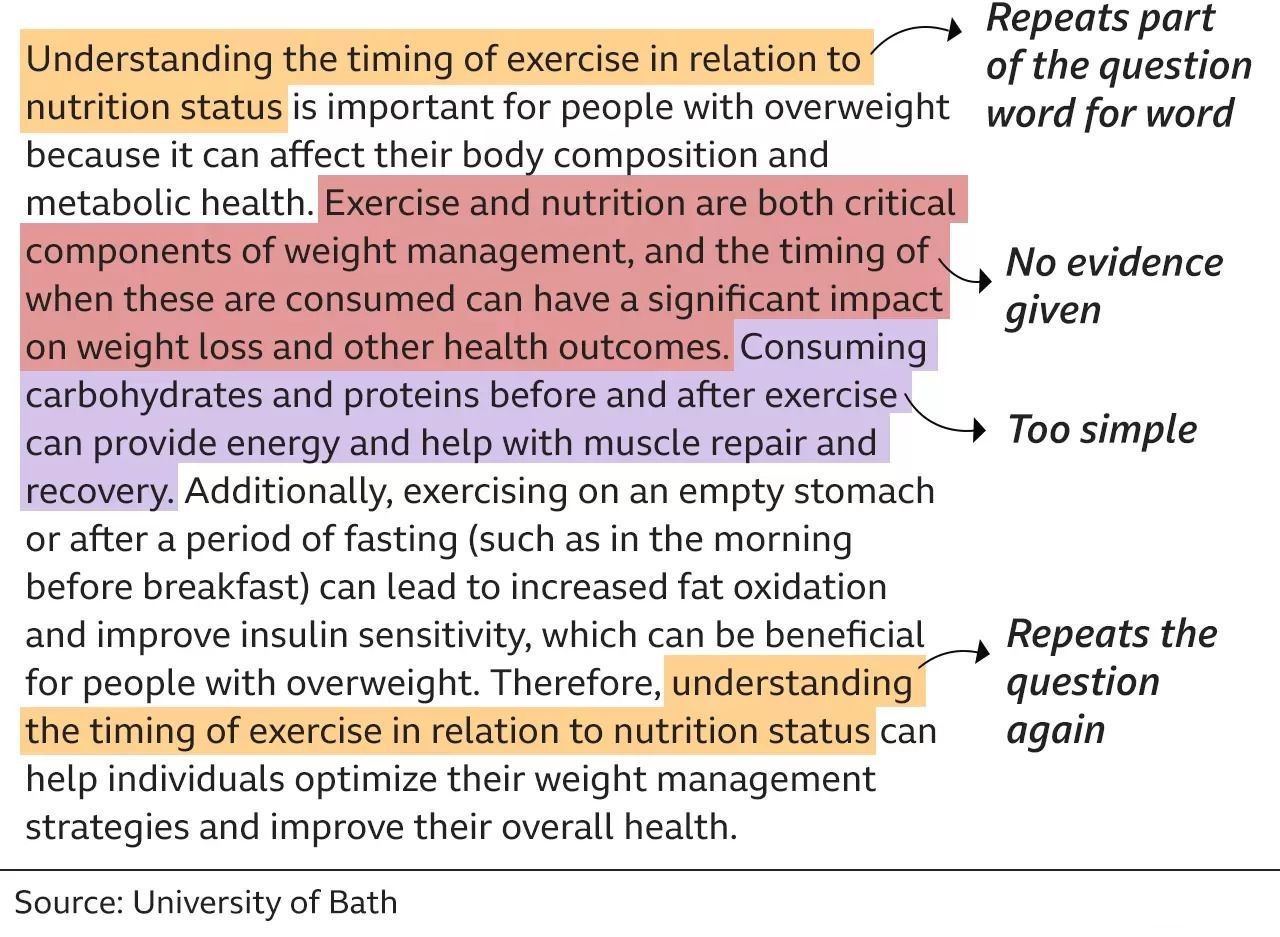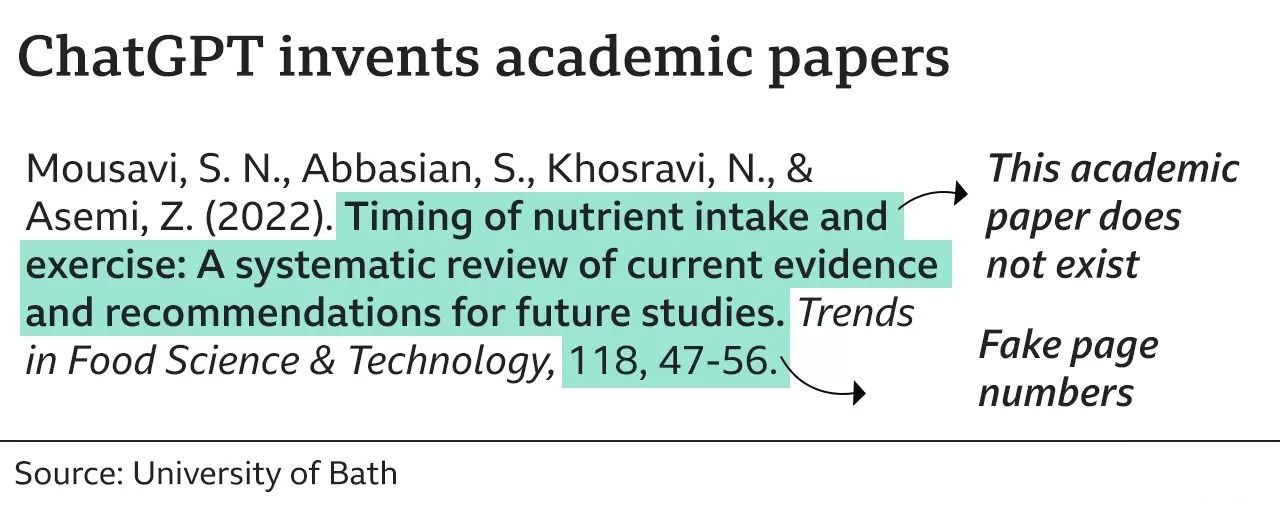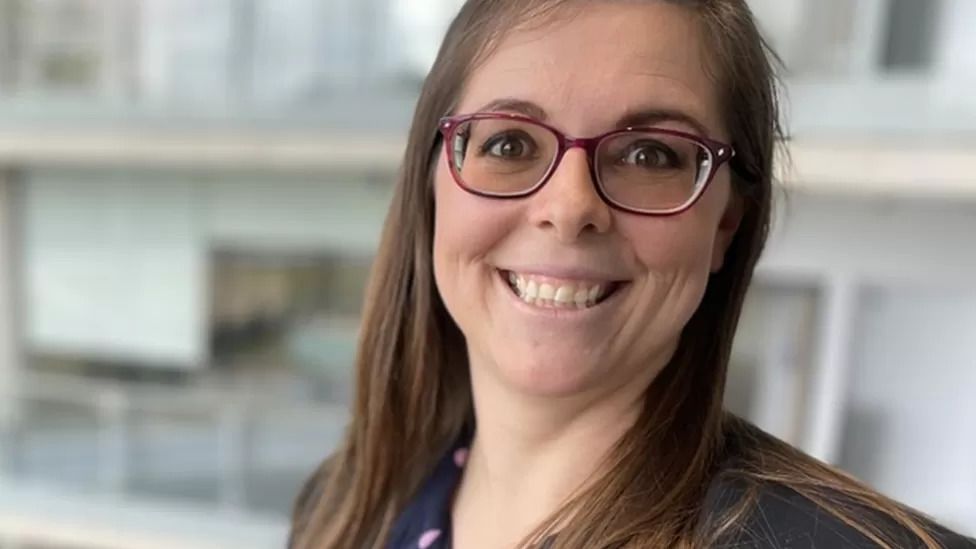As exam season gets under way, students might be tempted to turn to new artificial intelligence (AI) tools to give them the edge in assessments.
Universities have been scrabbling to understand what AI applications such as ChatGPT are capable of and introduce guidance on how they can be used - and now, they're being urged to teach students how to use them.
Academics at the University of Bath have been considering the challenges and opportunities.
"Our first question was, 'Could this be used by students to answer our assessment questions?'" James Fern says of ChatGPT - an online tool that can answer questions, including producing essays and emails, in human-like language.
 James has been looking at how robust his department's assessments are
James has been looking at how robust his department's assessments are
"Multiple choice questions, for example, it will handle those very well.
"We definitely were not expecting it to do as well as it did... it was getting close to 100% correct."
But with more complex questions, which require students to think critically and which he says make up the bulk of assessment, it struggles.
One example, from a final-year assessment, reads: "Why is it important to understand the timing of exercise in relation to nutrition status in people with [a technical term, according to James] overweight?"
And there are tell-tale signs the answer given by ChatGPT was not written by a student.

"On first glance, it looks very good - it looks very clearly written, it looks quite professional in its language," James says.
But some of the statements are more like those of a GCSE pupil than a university student.
It has a habit of repeating the exact phrasing of the question in its introductions and conclusions, "just written in slightly different ways".
And when citing sources of information, as is standard in academic work, it simply makes them up.

"They look perfect - they've got the right names of authors, they've got the right names of journals, the titles all sound very sensible - they just don't exist," James says.
"If you're not aware of how large language models work, you would be very easily fooled into thinking that these are genuine references."
Since ChatGPT was released to the public, about six months ago, many students have been unsure when they can and cannot use it.
"I might be tempted to use ChatGPT... but currently, I'm too scared to because you can get caught," says one student walking between classes on campus.
"It's not clear yet what is considered cheating with ChatGPT," another says. "If you copied your whole assignment from ChatGPT that's cheating - but it can be really helpful to guide."
Education Secretary Gillian Keegan said in a speech on Monday that AI was "making a difference in schools and universities already", and suggested it could help school teachers with lesson plans and marking.
New advice from Quality Assurance Agency, which reviews standards at UK universities, urges them to equip students with AI skills they can take into the world of work.
It encourages them to explain to new and returning students, in September, how and when AI should be used - and to adapt courses where appropriate.
Marketing lecturer Kim Watts calls it "another tool in the toolbox". And some students in her department have already started using ChatGPT this term, in coursework that asks them to produce a marketing plan.
 Kim says ChatGPT will help get "students started on things"
Kim says ChatGPT will help get "students started on things"
"I'm suggesting that students go to ChatGPT, those who maybe don't know where to start... and start playing around with prompts," she says.
"It won't give them the answers - but it can give them ideas."
'Critical thinking'
Kim demonstrates by asking ChatGPT to produce its own marketing plan.
It responds with a series of numbered points - everything from the creation of a brand identity to the use of social media.
But Kim, looking up from her screen, says: "This will not pass.
"Submitting something like this is just not detailed enough - it doesn't show us any learning, it doesn't show any critical thinking."
Neurodivergent students and those for whom English is not their first language will benefit most from ChatGPT, Kim says.
But any student choosing to use it will be asked to submit their ChatGPT prompts and answers as an appendix, to make it "really clear how far they have come" from the chatbot answers.
Summer exams
As with most universities, Bath's policy on ChatGPT and other AI tools is still in the works. It is due to be in place from September.
After that, a team will meet throughout the year to ensure it keeps up with the rapidly changing technology.
In the meantime, many staff are once again setting in-person, invigilated summer exams.
Dr Chris Bonfield, the head of a team that helps design assessments, says the "default assumption" is students should not be using ChatGPT this year. And, if staff decide to allow it, they should clearly set out their expectations.
The pace at which the technology is evolving poses a challenge for universities - but Bath quickly moved away from conversations about banning it.
 Chris says the pace at which the technology changes poses a challenge for universities
Chris says the pace at which the technology changes poses a challenge for universities
"This tool is not going away," Chris says.
"In order to ensure our students are equipped with the skills they need for the future workplace, but also that our degrees remain current, we're going to have to engage."
'Too dangerous'
Last week Geoffrey Hinton, widely regarded as the godfather of AI, resigned from Google, saying he regretted his work - and chatbots could soon be more intelligent than humans.
Prof Verena Rieser, a computer scientist at Heriot-Watt University who has been working in the AI field for two decades, says her own students are "using it in very creative ways" - but chatbots are still in the early stages of development and "can be used to generate misinformation at [a] scale which is obviously very concerning" when it comes to education.
Previous models of ChatGPT were not released because they were deemed "too dangerous", she says.
Its developer, OpenAI, says "like any technology, these tools come with real risks" and it works "to ensure safety is built into our system at all levels".
Since ChatGPT's launch, other companies have focused their efforts on AI. Google, for example, released Bard, which is available to adults only.
"I would expect that we'll soon see different flavours of ChatGPT by different companies out there and hopefully also safer models which actually mitigate for the possible dangers," Verena says.
"At this moment we don't really know how to stop the models outputting information which is wrong or toxic or hateful - and that's a big problem."















